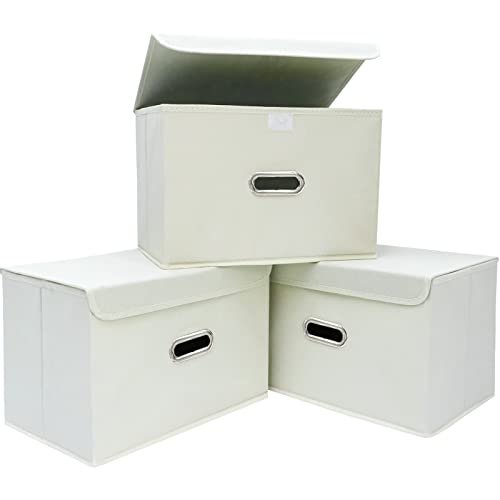
Decluttering can be a tough task, so it's not uncommon for a person's focus to waver. If you find yourself abandoning decluttering, this expert guide will help stop your body and mind wandering off task.
Here, professional organizers and a psychologist reveal four vital decluttering tips to stop mental and physical 'wandering' mid declutter.
Why can it be difficult to maintain focus while decluttering?

According to Shari B. Kaplan, licenced psychotherapist and integrative mental health clinician at Cannectd Wellness, there are three main contributing factors that cause a person to stray from a decluttering task: emotional drain, mental drain, and over analysis.
Shari breaks them down into the following sets of cause and effect:
- Decluttering can be emotionally draining as you are going through old items, sifting and sorting through the memories that go along with each one. You can burn yourself out or become overwhelmed just by the emotional attachments to some objects. The cascade of thoughts and emotions that go along with experiences that are connected to the items can stop you in your tracks, and then you can't focus on getting the task done.
- Decluttering uses many different brain functions in the process of decision making. You are using your working memory to choose what to declutter versus emotionally what you are willing to separate with. Will you need or want it again in the future, and experience 'declutter regret' if you let it go? How much money did you invest in the item? This can be an exhausting process, especially when dealing with a lot of stuff, so many people abandon their decluttering instead.
- Some people over analyze each item while they try to declutter their home. This can cause a person to freeze up and choose to do nothing about decluttering, taking the path of least resistance and keeping everything as it is.
When one or more of these impacts someone who's trying to declutter, an already tough job can become that much tougher. But fortunately, according to professional organizers, these four tips are key to being able to finish the job.

1. Assess why you struggle and what you need
Have you ever sat down to ask yourself why you believe decluttering is a struggle? Why your thoughts stray to other tasks or spaces in the home, or once decluttering begins why you feel a wave of wishing to do literally anything else?
The more in tune we are with out struggles, the better we can understand our needs and decluttering mistakes, according to Kimberly Corey, certified professional organizer, certified virtual organizing professional, and owner of Finely Sorted Organizing.
'Once you break down the reasons for your difficulty you have a better chance to subvert it and figure out what it is you yourself need while decluttering,' says Kimberly.
Thinking this through, noting this down on paper, or talking to someone who knows you well are all impactful ways to assess your relationship towards decluttering and how you can best tackle the task. You may be someone who needs breaks, but someone else might operate best continuing a task while they're on a roll with it.
Working in decluttering bursts may be less daunting for some, whilst a timer can either hinder or help others. Thinking about what works for you can help identify and clear blocks with workable solutions.
'If you still find after thorough examination that you can't declutter, I recommend thinking about booking a session with a trained mental health practitioner or coach to uncover the things that block you from achieving your goals,' says Kimberly.
Many of us have been there and abandoned tasks (my laundry still isn't folded and put away), and there's nothing wrong with seeking help from friends, family, or professionals.
2. Use time blocking

Designating a set period of time in your calendar to declutter, whether it's for 20 minutes or two hours, can make a world of difference to your ability to stay focused and work through your decluttering checklist. Since this event is written down and officially scheduled, it feels like less of a "maybe" and more of a solid "to do", plus you can schedule your decluttering at a time that best suits you.
Kiera Malowitz, certified professional organizer and owner of Decluttered, is a busy mom and uses time blocking to help maintain focus when decluttering and organizing the family home. 'Whenever I have a task that I need to dedicate some time to and not get distracted, I use time blocking on my calendar,' says Kiera. 'I turn off all other notifications on my phone and do my best to stay focused. I set timers for every 20 minutes while I declutter as I go so that if I do get distracted, the timer reminds me to get back to what I was working on. As a parent, I tend to get distracted often so this helps me get back to work!'
You can also use body doubling, where you watch a video of someone else doing the same task, or physically teaming up with someone else to do the same thing at the same time.
If using your phone as a timer could lead to more distraction, we recommend switching it off and instead using a manual pomodoro timer such as the Visual Timer from Amazon. Available in many colors, this timer will keep track of the duration of your decluttering session, remind you when it's over, and provide a pleasing visual where you can clearly see how long you have spent on the task.
To add some clear process to your task, and reduce the mental energy needed, use the one-touch tidying rule, or didn't know decluttering method to quickly decide whether you're keeping an item or not.

Use collapsible boxes to divvy up items in an area you're decluttering. You can use this set of three plus a trash bag for the four-box decluttering method, which means separating belongings into keep, donate, relocate or trash groupings.
3. Use 'temptation bundling'

I hadn't heard of this term before speaking to Ben Soreff, professional organizer and partner at House to Home Organizing, but it's a great idea to help hold yourself accountable to declutter even the most overwhelming areas of your home.
'A great way to finish a boring home organizing and decluttering task is to use temptation bundling,' says Ben. 'If you don't want to review the junk drawer, for instance, bundle it with a treat or reward. For some, it is getting ice cream after the task is done but whatever the reward, you marry it to the specific task.'
Doing this means when your feel your brain begin to wander from the task due to overwhelm, disinterest, or distraction, you can remind yourself of the incentive you set out and keep pushing through your decluttering roadblock. There's nothing to be ashamed of bribing yourself in this way: it's good to reward yourself for completing difficult tasks and so long as you get what you need completed, what works for you is more than valid. It's something I've actually done for years on days when my brain struggles to focus, especially back when I was studying.
If it isn't enough to just mentally have your reward in sight, try putting it on a post-it from Walmart or writing it onto a whiteboard in the room while you work. Sitting the reusable TORASO Glass Dry Erase Board with Solid Wood Base from Amazon somewhere in the room while you declutter will do the trick. Don't forget to pick up some whiteboard markers too. The Pen+Gear Dry Erase Marker Set from Walmart is great value.
4. Remember your 'why'

In the midst of decluttering, as your brain begins to wander, it might be tempting to table continuing the session to another day. But if you stop to remember why you wanted to declutter in the first place and ask yourself questions when decluttering your home, this can realign your focus to the task at hand.
It can help prior to decluttering too, so that you can deeply consider why you wish to declutter. Go into the task in a productive mindset and keep reminding yourself of this why to keep the momentum going.
Di Ter Avest, professional organizer, owner of Di Is Organized, and author of the book Organize Yourself Healthy', available on Amazon, says, 'Before touching a single item, get super clear on what you want the space to look and feel like. Close your eyes – how does this space support your daily life? Does it feel peaceful, functional, energizing? When you’re tempted to quit, this vision will remind you why you started."
If you're more of a visual thinker, perhaps try mapping out your why using Post-it Super Sticky Notes Bright Colors from Walmart on a wall or on the front of your fridge. The visual Post-it decluttering method works well for a reason!
On each note, write down a reason why you want to declutter. This might be to have neat, stylish storage ideas where you can find everything you need, or a note of the benefits you feel decluttering will bring. When you feel distracted want to abandon the task, walk over to this for motivation and accountability.
Meet the experts
There are many ways to declutter a home, and we should know as we've tried and tested dozens. They're all organized in our Homes & Gardens decluttering library, categorized by the time they take or who each would suit the most.
Use it to find your perfect decluttering match and banish task wandering once and for all.







